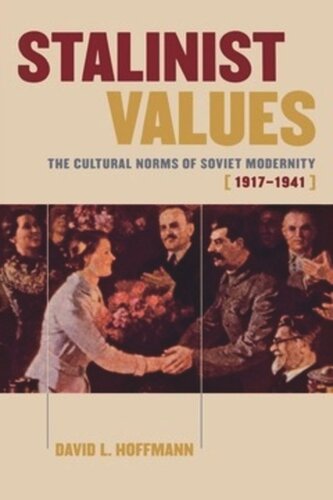

Most ebook files are in PDF format, so you can easily read them using various software such as Foxit Reader or directly on the Google Chrome browser.
Some ebook files are released by publishers in other formats such as .awz, .mobi, .epub, .fb2, etc. You may need to install specific software to read these formats on mobile/PC, such as Calibre.
Please read the tutorial at this link: https://ebookbell.com/faq
We offer FREE conversion to the popular formats you request; however, this may take some time. Therefore, right after payment, please email us, and we will try to provide the service as quickly as possible.
For some exceptional file formats or broken links (if any), please refrain from opening any disputes. Instead, email us first, and we will try to assist within a maximum of 6 hours.
EbookBell Team

4.4
92 reviewsSoviet official culture underwent a dramatic shift in the mid-1930s, when Stalin and his fellow leaders began to promote conventional norms, patriarchal families, tsarist heroes, and Russian literary classics. For Leon Trotsky—and many later commentators—this apparent embrace of bourgeois values marked a betrayal of the October Revolution and a retreat from socialism. In the first book to address these developments fully, David L. Hoffmann argues that, far from reversing direction, the Stalinist leadership remained committed to remaking both individuals and society—and used selected elements of traditional culture to bolster the socialist order. Melding original archival research with new scholarship in the field, Hoffmann describes Soviet cultural and behavioral norms in such areas as leisure activities, social hygiene, family life, and sexuality. He demonstrates that the Soviet state's campaign to effect social improvement by intervening in the lives of its citizens was not unique but echoed the efforts of other European governments, both fascist and liberal, in the interwar period. Indeed, in Europe, America, and Stalin's Russia, governments sought to inculcate many of the same values—from order and efficiency to sobriety and literacy. For Hoffmann, what remains distinctive about the Soviet case is the collectivist orientation of official culture and the degree of coercion the state applied to pursue its goals.